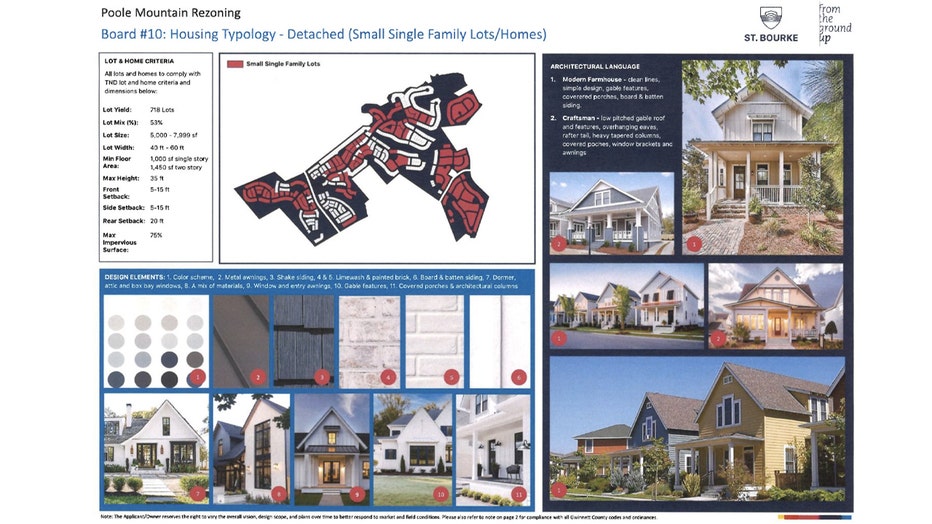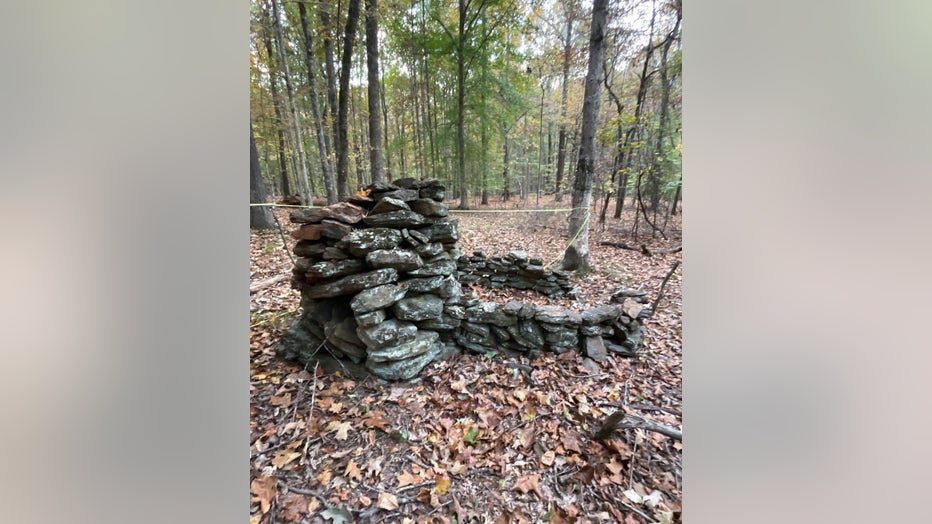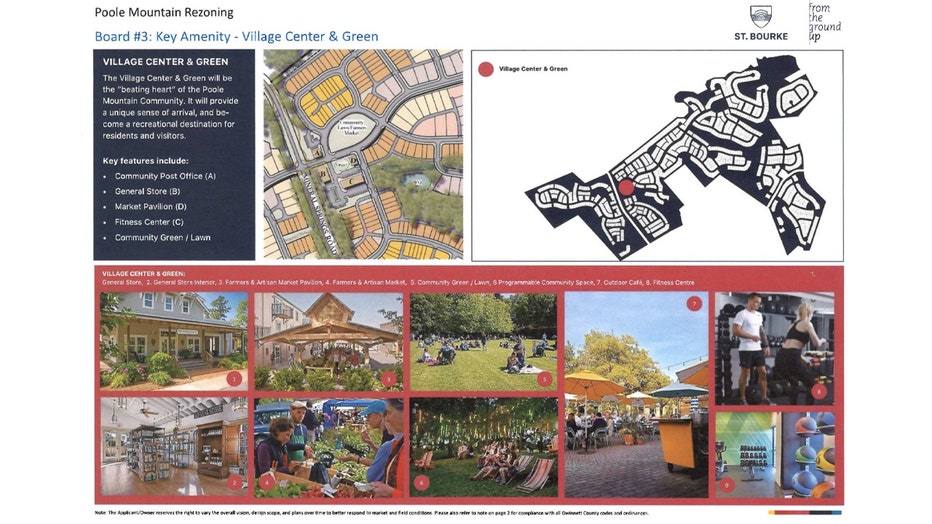Developer: Mystery mounds will be protected if proof of indigenous culture
Ben Simpson of St. Bourke said his expert found no evidence of Native American connections to a series of rock mounds on Poole Mountain. Simpson wants to build 1382 homes there.
AUBURN, Ga. - The developer for a big housing project called Poole Mountain told the FOX 5 I-Team he does not want to destroy any Native American history.
Poole Mountain is adjacent to Little Mulberry Park, a Gwinnett County public space created in large part to protect rock formations thought to be built by indigenous people.
Dozens of similar rock structures dot the landscape at Poole Mountain. But Ben Simpson, the president of developer St. Bourke, said their expert found no evidence of historical significance.
"We certainly understand and appreciate there’s a lot of importance that’s been attached to these rock piles by various neighboring residents and other people," said Simpson. "But they simply haven’t reviewed the detailed investigations that have been completed."
Gwinnett County rock piles: Indigenous creations, or just rocks?
It's a big question the people behind a big housing development tell the FOX 5 I-Team they mulling over: Are the rock formations found throughout Poole Mountain and Little Mulberry important pieces of Native American history, or not?
St. Bourke bought the land in 2012. By then, it had already been rezoned for 1066 homes.
No one raised questions about the mounds then.
But the developer chose to wait to build, instead asking for denser zoning to fit 1382 townhouses and single family homes on the 519 acres. St. Bourke seeks permission to build a variety of home styles rather than one allowed by current zoning.

Some of the home styles included in St. Bourke's application for rezoning.
In its October 2022 rezoning application, St. Bourke flatly told Gwinnett County there are "no cemeteries or architectural or archeological landmarks on the property."
That made no sense to neighbors like Lori Knuteson who has watched people cross her property to pay homage at a place called the Prayer Altar, a collection of rocks stacked in a semicircle near Lori’s home.
"I was upstairs ironing, and I looked out the window to see an elderly woman hiking into the woods," she said. The woman told Knuteson she was a retired Cherokee chief.
"I’m convinced that at least the Native Americans are convinced (the rock mounds) are theirs," said Knuteson.

The "Prayer Altar" rock formation on the Poole Mountain property. The developer's expert determined there is no evidence this was built by Native Americans.
Steve Webb, an archeologist hired by the developer and the previous landowner, conducted three separate studies of the area since 2004. His verdict: the mounds were likely built by immigrant farmers as they cleared their land.
Webb even cast doubt on whether the Little Mulberry Mounds should be considered prehistoric. A marker there says they "are almost certainly associated with Native American cultures."
"Sort of the poses the question, maybe," said Simpson. "But our expert is very well-respected."
Knuteson and other neighbors don’t agree.
"Why would a farmer who could plant down here go up to the very top of the mountain and stack stones way up high?" she asked.

Developer Ben Simpson said if the rock mounds are found to be from indigenous people they will "work them into our open space within the community." This is the current plan for Poole Mountain's Village Green included in the developer's rezoning appl
Archeologist Dr. Jannie Loubser examined some of the rock mounds on the edge of the proposed development.
"At least some sort of study should be done because the worst is that you’re going to destroy human remains and not even realize it," he cautioned.
But Loubser said he would defer to the developer’s expert if he tested the same rock mounds Loubser examined. It’s unclear whether that happened.
Sierra Creek Atlanta, the legal owner for part of the overall development, appeared in court to plead no contest to some code violations issued by Gwinnett County inspectors.
Simpson said Poole Mountain will challenge other citations blaming his people for the storm water runoff damaging neighbors’ property.
We asked Simpson if he would agree to let Gwinnett County choose an expert to offer a final opinion on the rock mounds.
"We’ll have to get back to you on that," he said.
"If it is scientifically proven that they have some connection to Native American history or culture, then of course we will look to protect them and work them into our committed open space with the community."
Meanwhile, opponents are gathering signatures to oppose the development when it gets before Gwinnett County Commissioners.

